Meet blues powerhouse and Songs for Freedom Artist Kankawa Nagarra, an Elder and accomplished international touring artist from the West Kimberleys. Kankawa first came up to Roebourne in 2021 to lead workshops in the community and in the prison and discovered something her heart longed for.
“My experience of Roebourne was a very fulfilling one, – one that I longed for, being a writer and a musician. Getting songs written, lyrics, it just brought joy to my heart”, shares Kankawa Nagarra in this first person narrative.
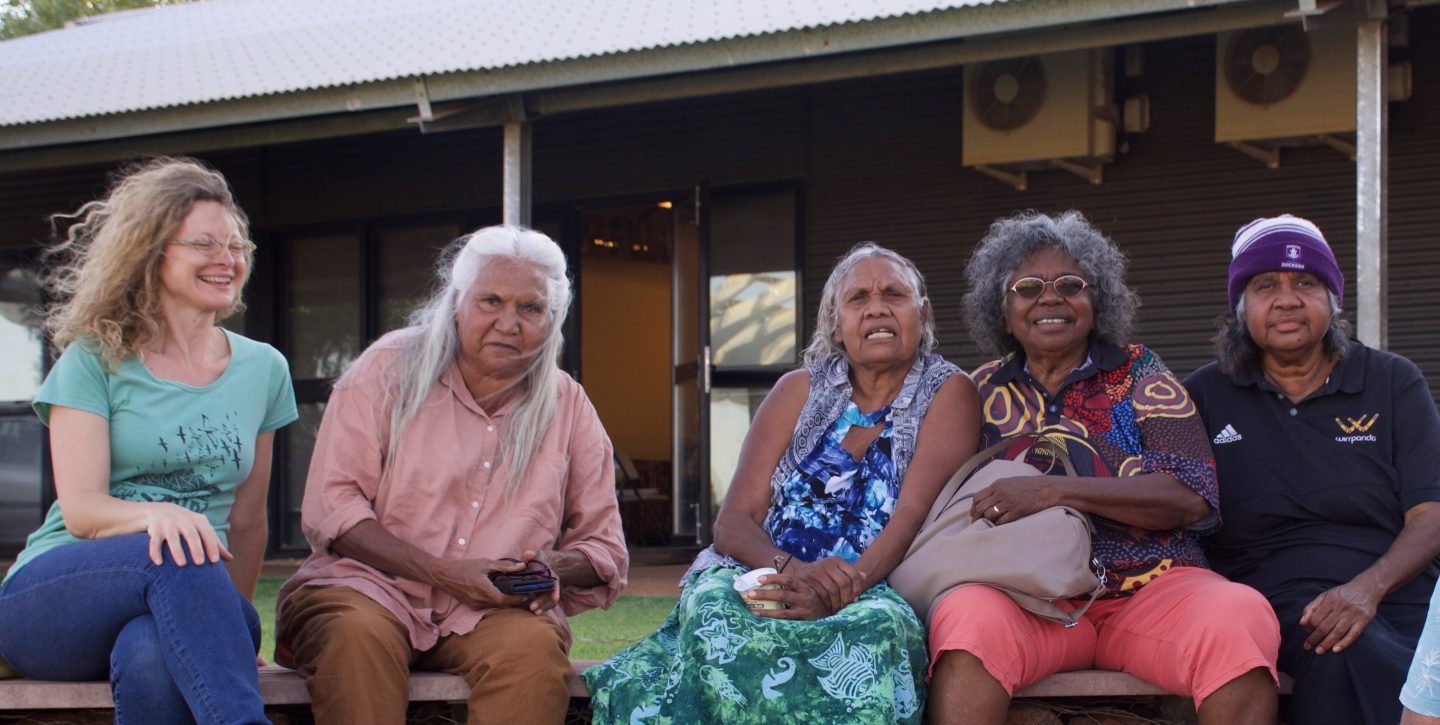
Kankawa Nagarra (2nd from R) at the Ngurin Cultural Centre in Roebourne with Pia Smith, Jean Churnside, Allery Sandy and Wendy Darby. Photo: Ben Green
My name is Olive Knight and my Indigenous name is Kankawa Nagarra and I’m from the West Kimberleys from a community called Wangkatjunka near Fitzroy Crossing.
I have three different tribal affiliations. There’s one from the desert called Walmatjarri, that’s my grandmother’s side, and one from the middle area – the Gooniyandi -that’s my father’s side. And my grandfather’s side is the river area (Bunuba). So I’m part river, part middle and part desert.
Early Influences
I grew up with traditional music but I discovered contemporary and other styles at the mission. I loved singing in choirs and in the church, it stayed with me.
I am sort of Stolen Generation. This particular mission sent us back in the holidays so we could connect with our people and our culture, so I can’t see myself as a fully Stolen Generation person. I’m grateful for that, that the missions decided to do that.
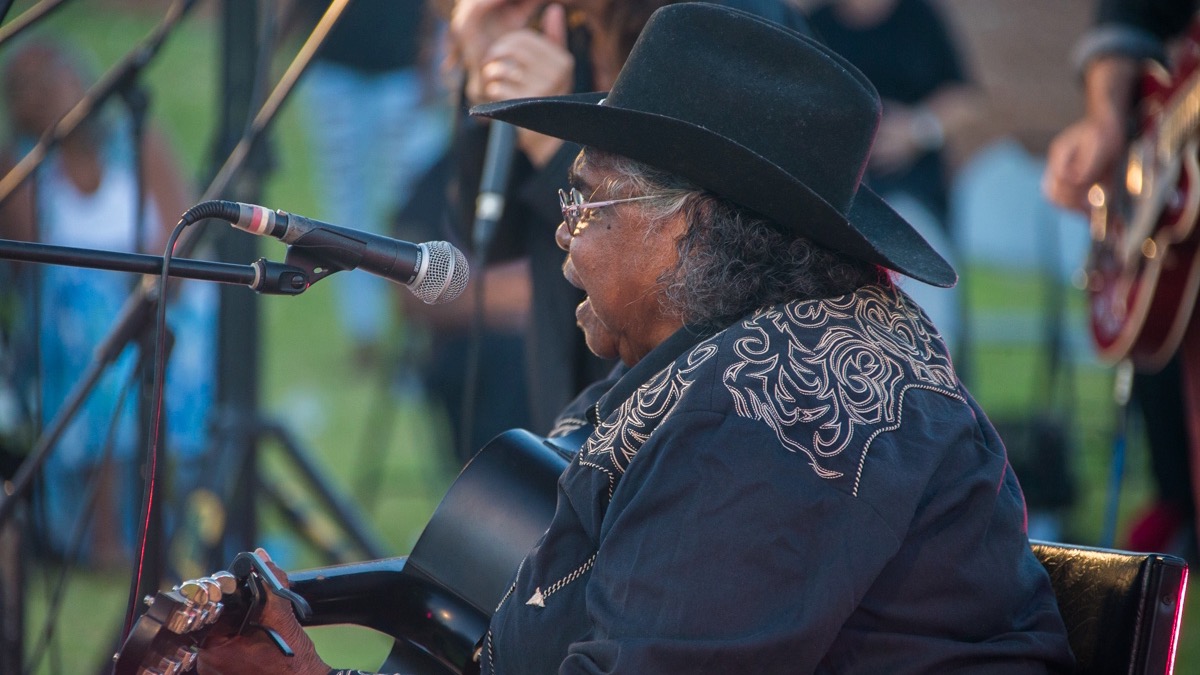
Kankawa Nagarra performs in Roebourne at Songs for Peace, 2021. Photo: Marg Bertling
I then listened to a lot of music on radio. There were a lot of people who loved country and western music, so I was pursuing that. In my culture, the women aren’t allowed to be doing the things that men are doing – playing instruments made out of wood, like the guitar – and so secretly I fell in love with the things men do with music.
I went on to rock and roll, it was good, but I think I’m more suited to another style, and that was the blues. When I finally did own a guitar (at the age of 40), I started playing the blues.
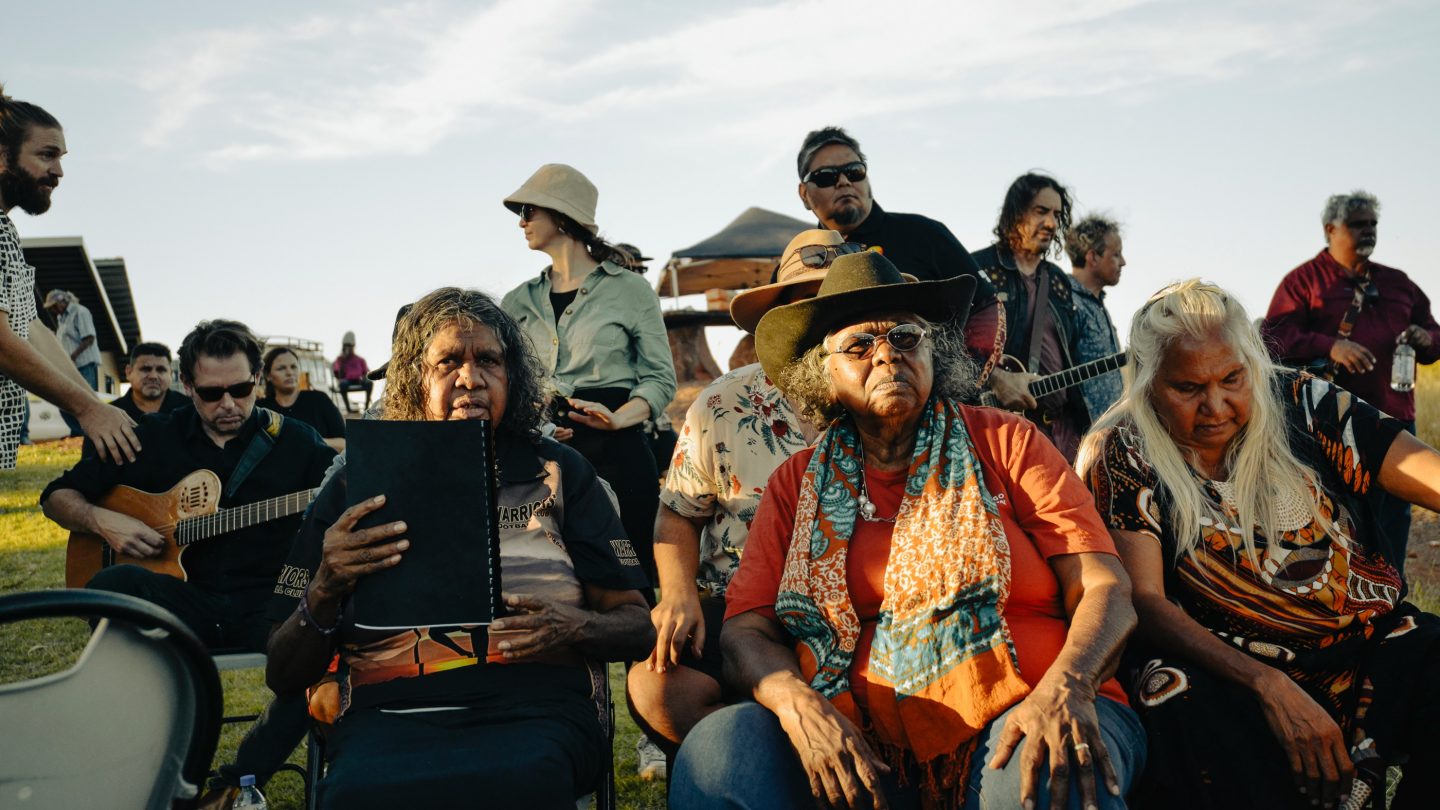
Kankawa reflects on her early life. Photo: Ben Green.
Going to Roebourne, Sept 2021
My experience of Roebourne was a very fulfilling one, – one that I longed for, being a writer and a musician. Getting songs written, lyrics, it just brought joy to my heart. Also just to be with the people and forming friendships. The love that these people have for music and writing new lyrics from the heart.
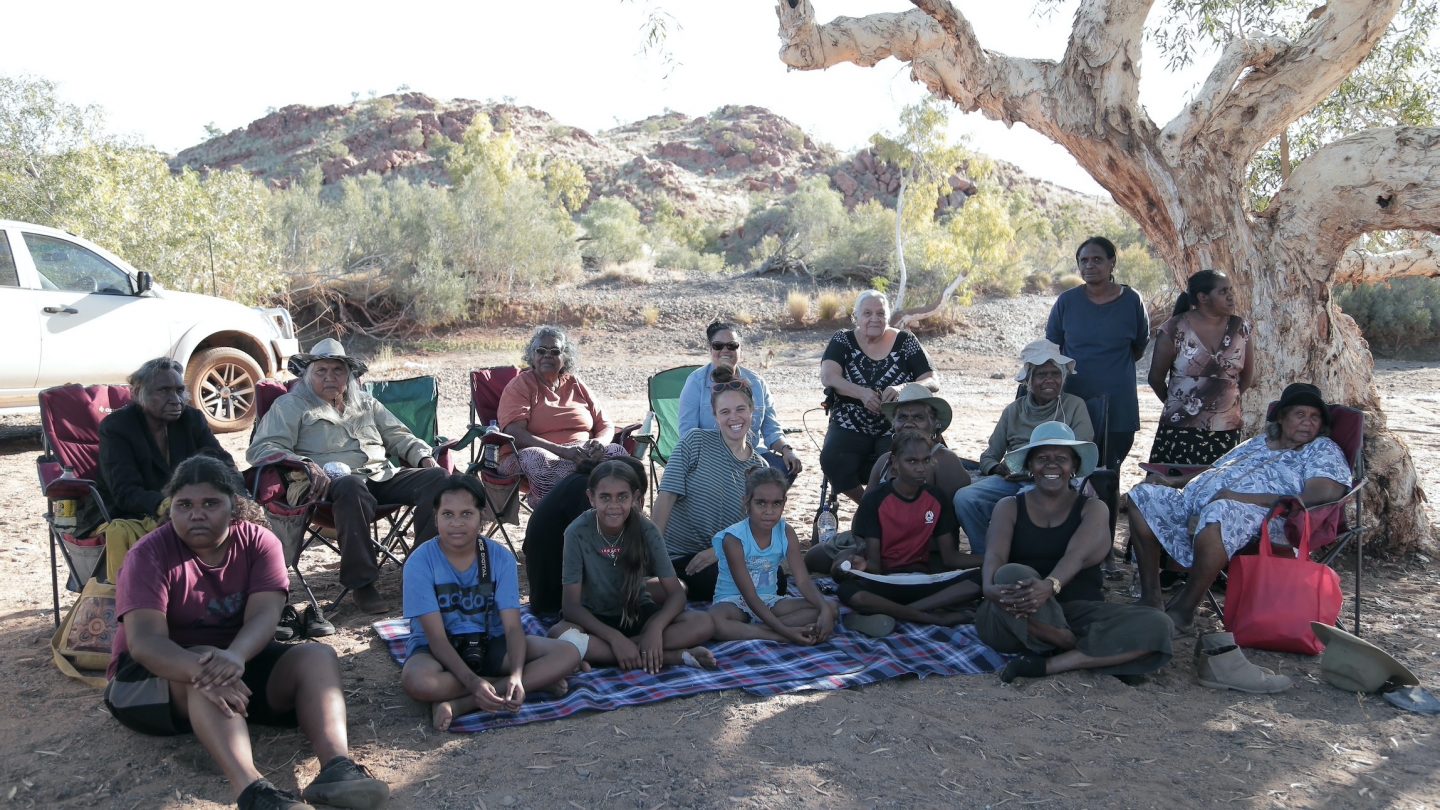
Kankawa joins a women’s on country trip at Red Rock, in the Pilbara. Photo: Big hART.
This is where blues for me comes from -the heart – your heart feeling your deep yearnings. When I am amongst my people there, in Roebourne, even though they come from another tribe, the heart feeling is there, the spiritual aspect of it is there, because we’ve all come out with what’s deep in our hearts.
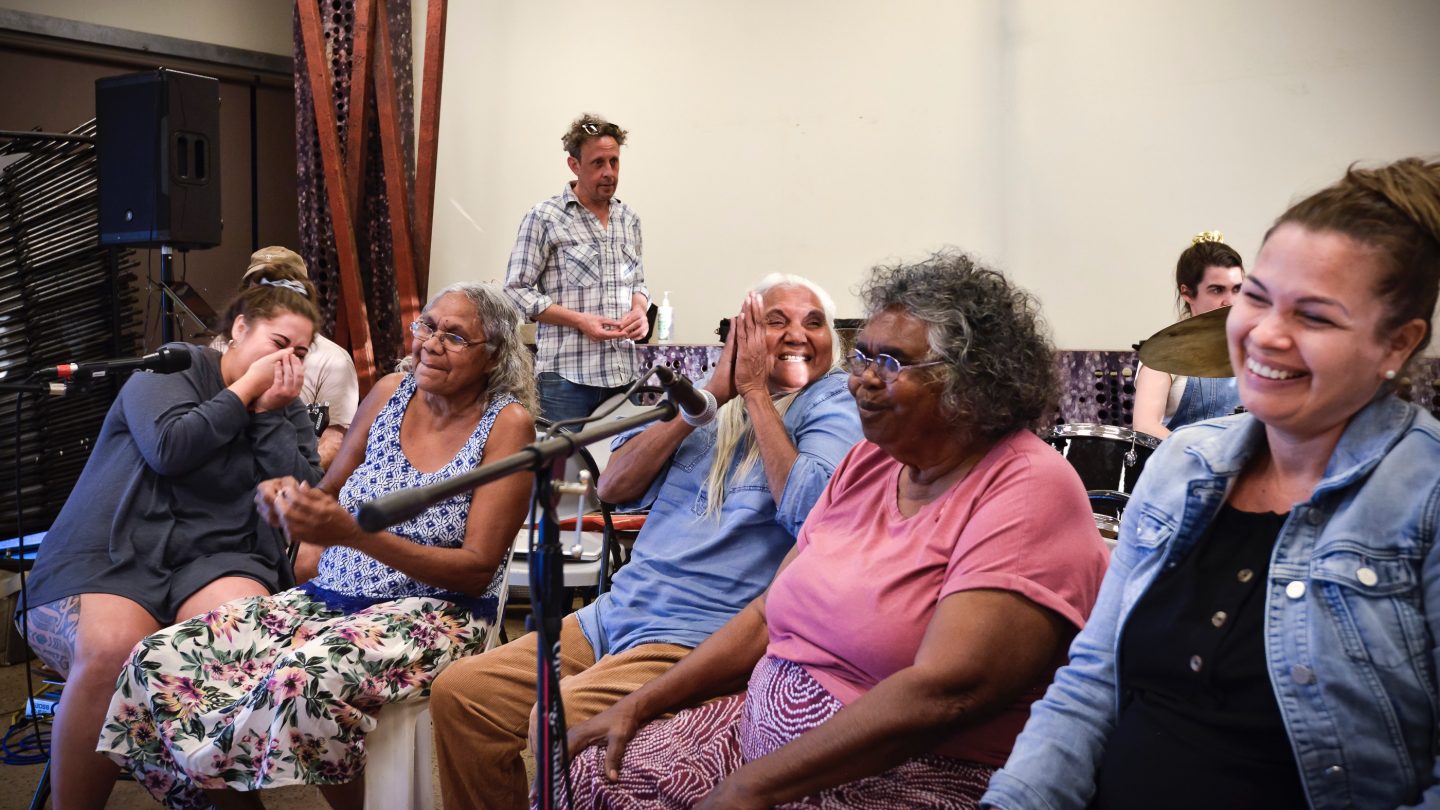
That heart feeling. Kankawa with Koda Tahi Tahi, Allery Sandy, Jean Churnside and Naomi Pigram in Roebourne. Photo: Ben Green.
Workshops in the Prison
The prison work to me is also very, very inspirational. I suppose a lot of times I was caught up with the emotions but at the same time there are beautiful people there. We were all strangers, there were people who were shy and restricted, but at the end everyone was full up, their shyness was broken, and we created a song.
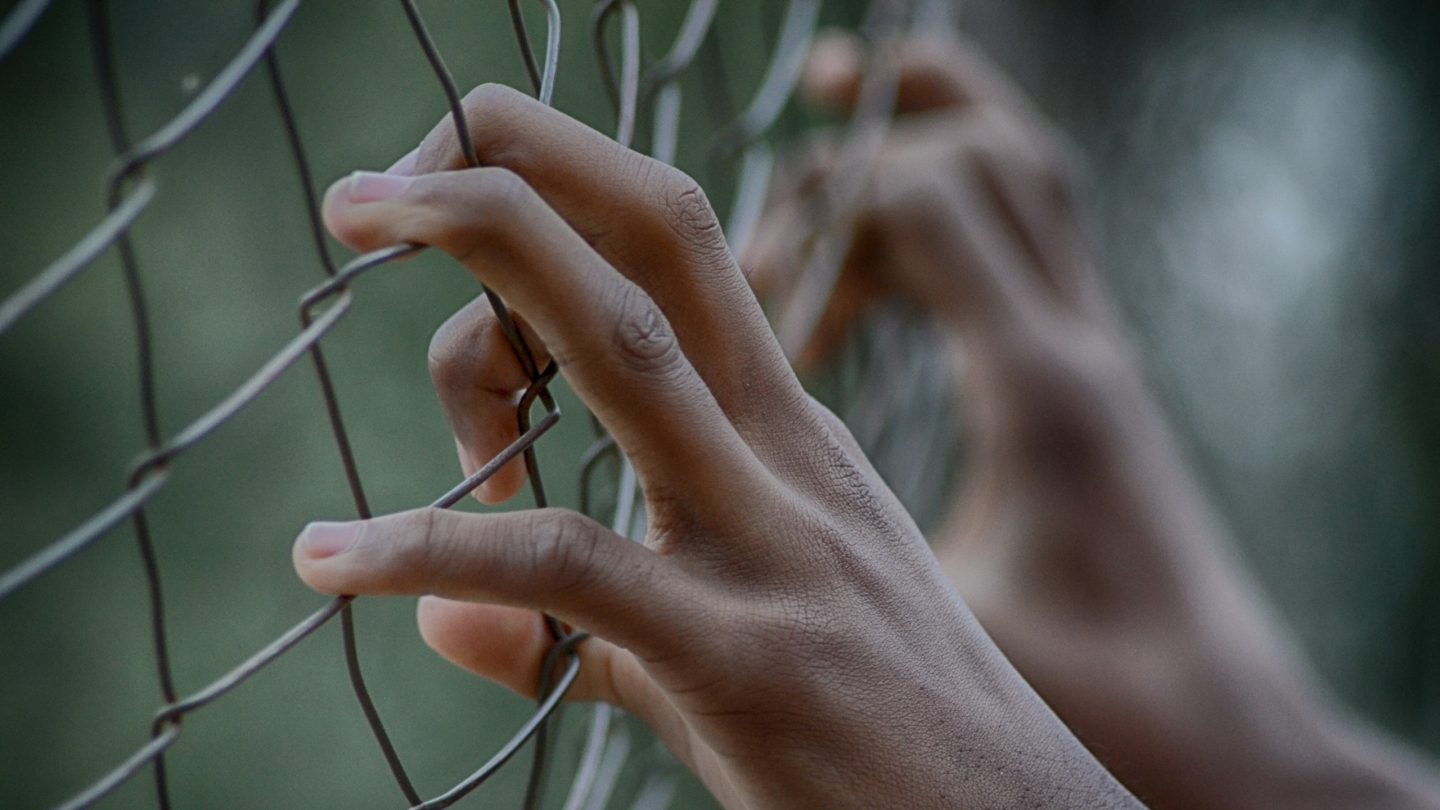
Kankawa Nagarra and Naomi Pigram did workshops with women in the prison. Photo: Spark Post.
When I come into a situation like that, I go in with whatever the people want to give me – if the prison decided to sing pop, or rock ‘n’ roll, or an orchestra piece or even rap. After we wrote the lyrics, one of the younger members of the group decided ‘now let’s do it in a in a rap way’. And there I was, it’s quite funny, a blues musician rapping with the prison. It’s freedom of expression, it’s their expression.
Songwriting is a Storytelling
The power of it, with another person, it’s a storytelling. Now the storytelling isn’t easy for us as Indigenous people. We do not expose ourselves out there easily. When we tell the story, we sort of divert the whole thing and talk about what’s happening elsewhere, other than us.
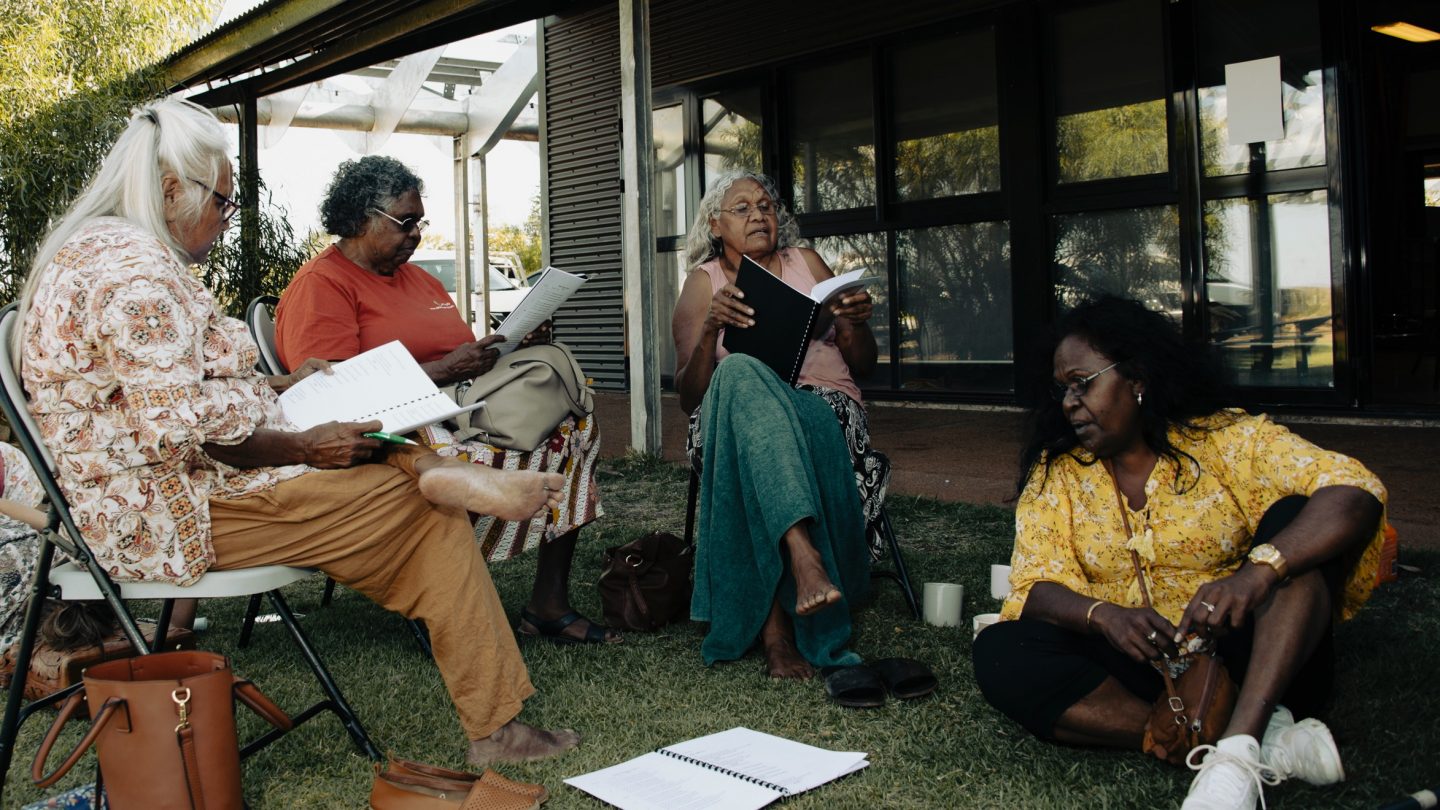
Songwriting in Roebourne, 2021. L to R: Jean Churnside, Kankawa Nagarra, Allery Sandy and Michelle Adams. Photo: Ben Green
What I like about the Roebourne exercise, we go into the story of ourselves. That’s what affects me really the most. Things that are so real and that are influential right now in our lives. Money is an influence. Where did that come from? It hasn’t come from our culture. Our culture was everyday living, we lived off the land. The story comes from the heart. That’s what is so attractive to me, it attracts me no end.
What Inspires my Songs
A lot of things inspire me. The most important of all is where I live of course – the desert and the hills – and the personal things about myself, my story. I recount some of the things that has happened to me in the past and what I see in the community. I live in a community where there’s heartache, heartbreak, and drugs and alcohol and all sorts of things happening around me. So, I focus on those things.
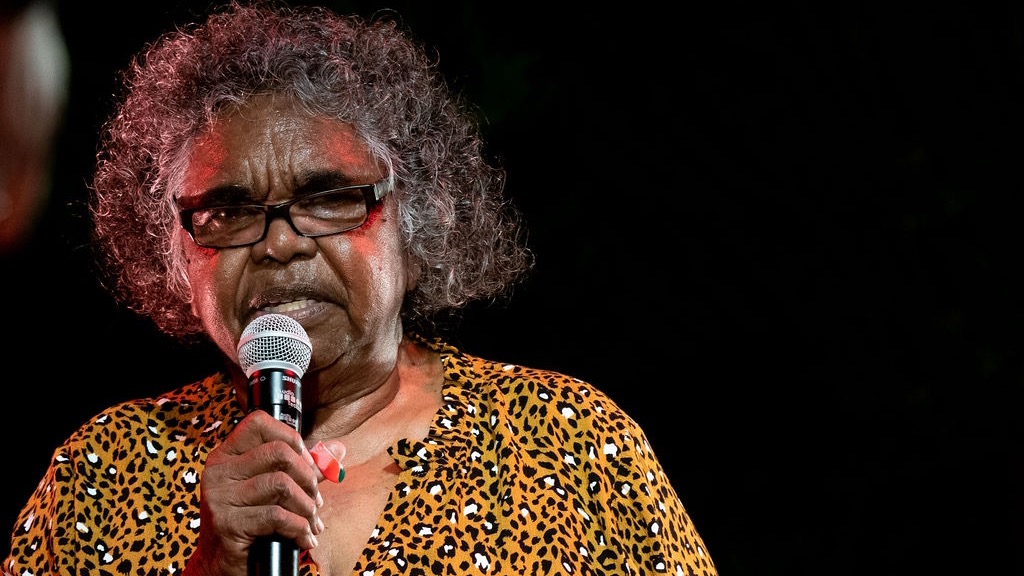
Kankawa speaks on stage at the 2021 Songs for Freedom, Perth. Photo : Linda Dunjey.
I write about depression, I write about suicide, I write about the environment. Personally, I had a loss three years ago, a beautiful grandson, and I write about him all the time. There’s lyrics that really grieves me because I tell myself I’m not going to tell the world about what I’m writing about. And there are times when I write about myself, about growing old – I wrote a song ‘Dancing in the Firelight of my Dreams’. That’s me getting old. I once danced in the firelight of my dreams, and now the embers are burning low, you know. Before long I’ll be staggering along!
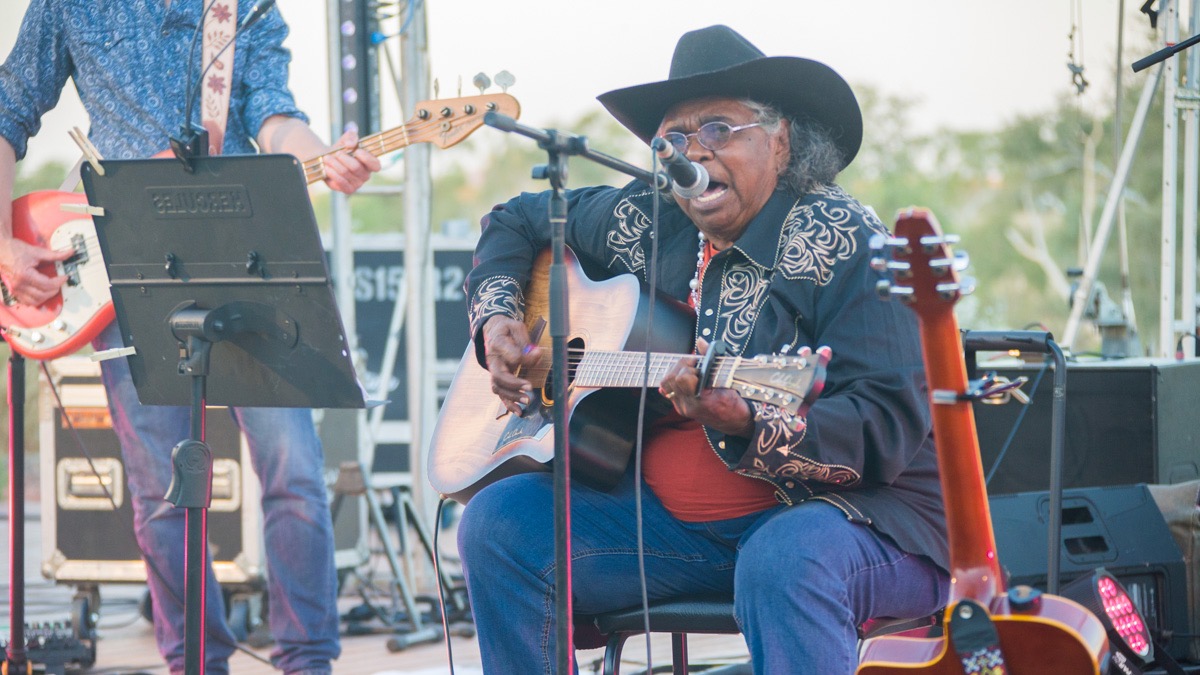
Kankawa performs at Songs for Peace in Roebourne, 2021. Photo: Marg Bertling.
Poetry has influenced me a lot towards my songwriting and all of that that I do now. William Shakespeare was one of my favourites. I was influenced by those sorts of poetry and prose. There’s another piece of poetry which I love very much it’s by Sir Francis Drake. It’s a prayer. “Lord sends me forth to wider seas. I lose sight of land and see the stars”. Which means – I’m out there in the Never Never, lost without no landmark whatsoever, and the stars are guiding me.
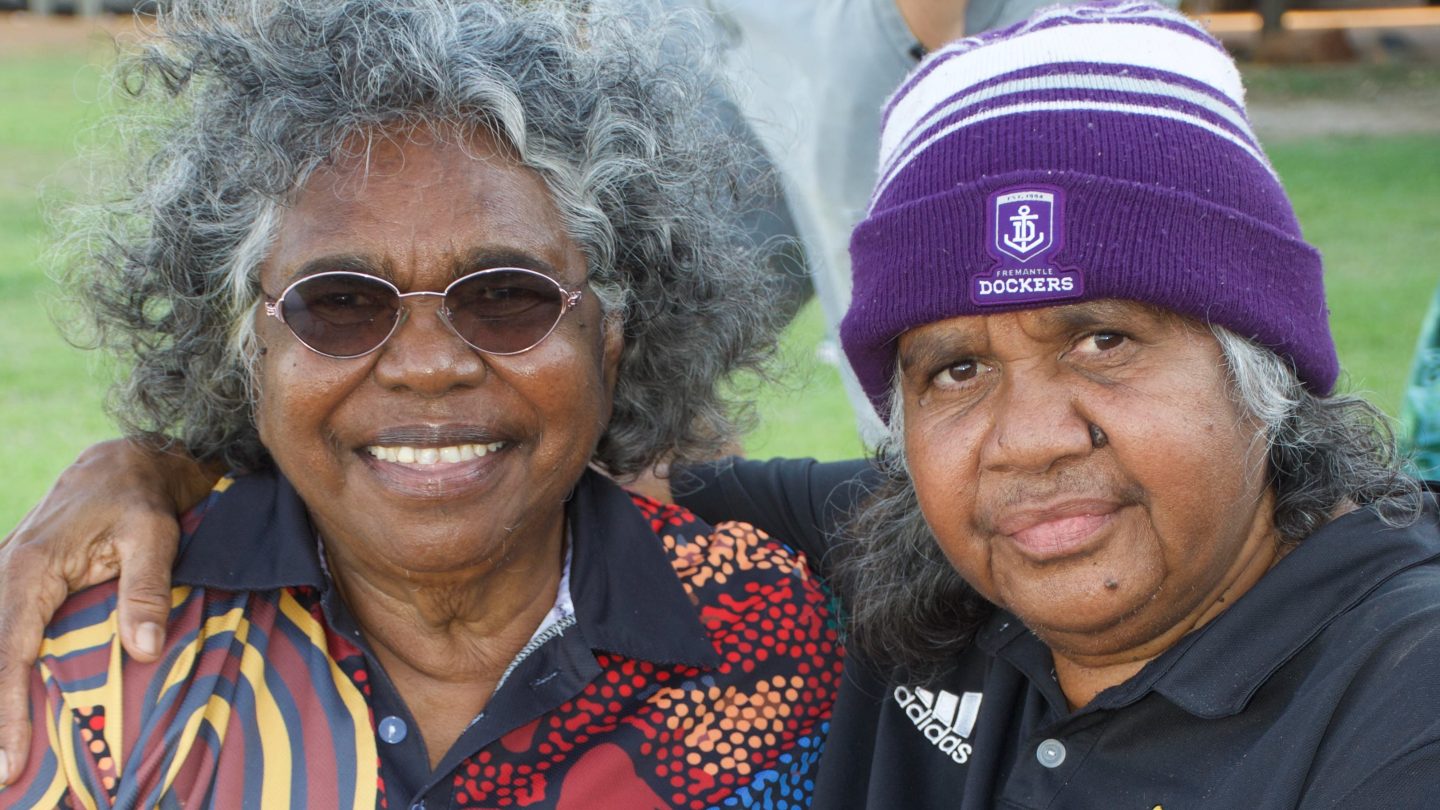
Kankawa Nagarra with her friend Wendy Darby in Roebourne 2021. Photo: Jessica Allan
Songs for Freedom
I’m looking forward to seeing my friends from Roebourne, whom I fell in love with so much. Especially the women because most of them are my age and I haven’t got a friend in my area that’s as old as me. I’m 77 this year. I’m so thrilled to be able to get together with them and the Songs for Freedom to happen.
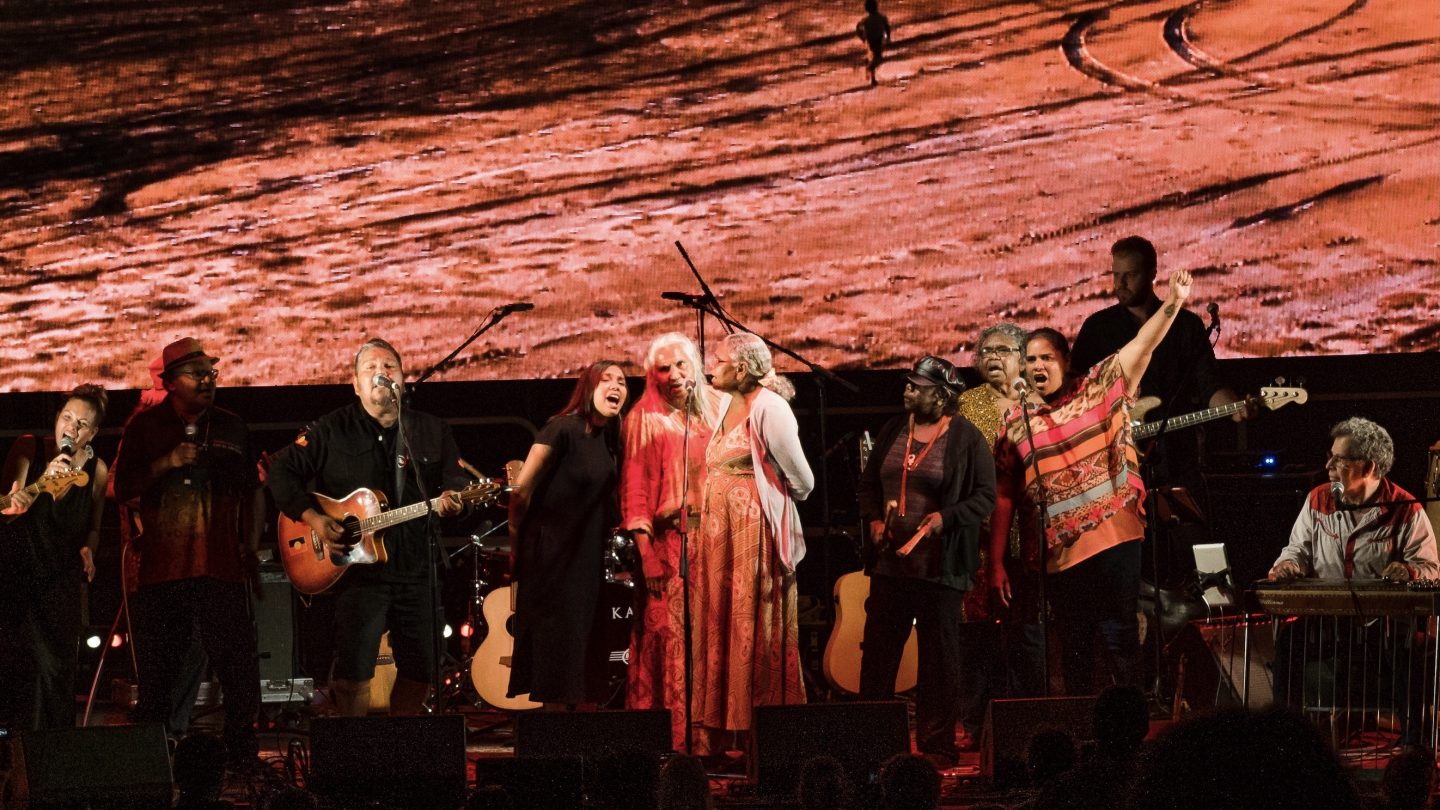
Songs for Freedom will return to Dyoondalup Pt Walter Reserve on Sat 26 February. Photo: Linda Dunjey.
I think people will go away feeling good about themselves. There will be messages sent across of course. I hope they take what was really the feel of it – our people delivering the goodness of the land through songs and activities, so people feel more refreshed. There are good things in the world that unites us all.
Looking Forward
Big hART has inspired me to no end. There are about four towns in the Kimberley that has a lot of issues, especially youth with crime. Now, the inspiration is that being a musician and having a team of people – if we were to attack those situations in my area – what a tremendous work it would be. We could curve a lot of issues with crime, youth crime, because that is what the worry at the moment is in the Kimberley. Also, there are musicians who need encouragement to be out there playing, to be more proactive. We want Big hART to come up and do something in the Kimberleys, to start up something at least.
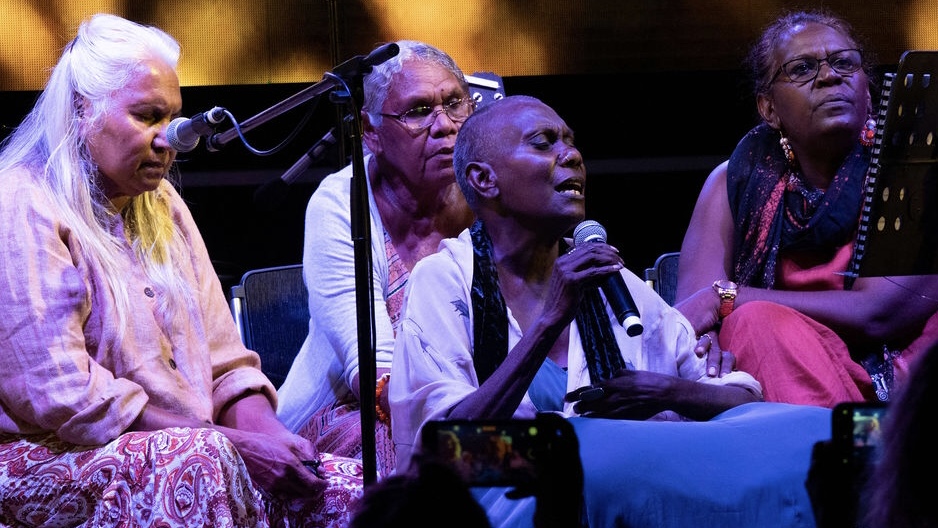
Ngarluma Jazz Singer & Stolen Generation Survivor Lois Olney performs onstage at the 2021 Songs for Freedom, surrounded by senior women from Ngarluma Country. Photo: Linda Dunjey.
The Roebourne people have come a long way – what they’ve now created is something so specifically important and strong for the whole of Roebourne as well as others. If we could spread Roebourne out a bit more. Is it the same stories as that in the Kimberley, or elsewhere? We need this story of Roebourne to go elsewhere, to spread.
Songs for Freedom is a free open-air concert by the river on Saturday 26th February at Dyoondalup Pt Walter Reserve, with cultural activities from 5pm and music from 7pm. This project is a proud partnership between the Roebourne community, City of Melville and Big hART. Discover more about Big hART’s projects in Roebourne here.
Words: Kankawa Nagarra
Interview: Bettina Richter
